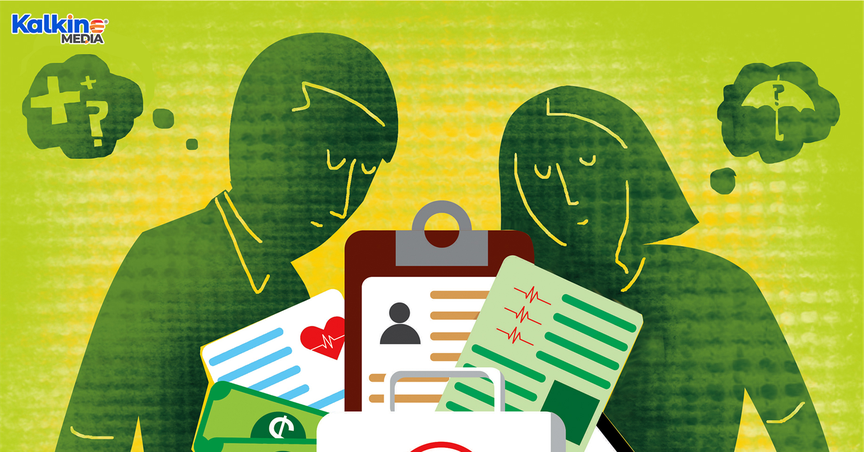Highlights
- The government has introduced guidelines that allow COVID related expenses to be tax-deductible.
- Earlier, there was uncertainty on whether the RAT and PCR testing would be tax-deductible.
- Tax deductibility is also offered on expenses that are incurred while quarantining for work-related reasons.
As Aussies battle inflationary pressures, any government policy that can help them save up on taxes could be a big step forward toward financial security. However, many Aussies are still not aware of the COVID-related benefits they can avail of on their taxes.
The RAT and RT-PCR tests are expensive and can add to the list of items that can weigh heavily on one’s pocket. However, the Australian government has ensured that the commonly occurring expenses related to COVID are tax-deductible. In February this year, Treasurer Josh Frydenberg announced tax breaks for businesses and individuals who had to provide a negative test report to be able to attend work.
The move was significant in reducing the uncertainty attached to various expenses associated with the virus. As international borders reopened and businesses resumed activity, the frequency of these tests could increase further in Australia.
Against this backdrop, let us discuss how COVID expenses are treated in relation to the taxes paid by Australians.
ALSO READ: Can Russia-Ukraine war derail Australia's economic recovery?
Which expenses related to COVID-19 are tax-deductible?
The Australian government has made COVID expenses tax-deductible if they are purchased for work-related purposes. In fact, the measures announced by the Australian government are probably already in place.
The general deduction provisions allow individuals to be qualified for a tax deduction on expenditures made under mandatory work-related guidelines. For instance, those getting a RAT done simply to show in their office can avail of tax deduction on the amount of the test.
The guidelines do not cover transport expenses made to reach the site of the RAT or PCR tests. These expenses are considered personal expenditures even if the test is a mandate required by one’s employer or company. However, costs incurred during a mandatory quarantine are tax-deductible. This is essential for those employees who had to take work trips when the spread of infections was high.
 Alternatively, quarantine expenses that are incurred on trips taken for personal reasons are not tax-deductible. Tax deduction on quarantine expenses is also not eligible for those fly-in, fly-out employees who travel to a regular work site without being under the supervision of their employers.
Alternatively, quarantine expenses that are incurred on trips taken for personal reasons are not tax-deductible. Tax deduction on quarantine expenses is also not eligible for those fly-in, fly-out employees who travel to a regular work site without being under the supervision of their employers.
Additionally, those travelling overseas or across states also need to present a negative certificate, which is covered under the existing guidelines. On the contrary, RAT kits purchased for personal reasons are not eligible for a tax deduction. The private reasons include the self-examination of the virus for travel and convenience, or the unavailability of PCR testing.
GOOD READ: Why IMF expects Australian economy to grow at 4.2% in 2022
How to claim these benefits
The most important step required to claim these benefits is having all the receipts and bills saved beforehand. These bills will be crucial in proving the expenses made by individuals while getting the tax return prepared. Additional proof would be needed to suggest that the test was needed because of work-related reasons and not for personal purposes.
The Australian Taxation Office has recommended that individuals should keep a record of all their COVID related expenses. This includes details of the supplier, the amount of the expense and the date of the payment. Most importantly, the legislation will be backdated to apply for the 2021-22 income year.
What about expenses made by employers?
The expenses made by employers are also tax-deductible but only for the employer under the category of a business expense. This business expense includes the necessary steps required to bring the workforce back into the business without compromising on their safety.
Earlier, tests provided to employees or any reimbursement given to employees for the tests they purchased on their own were included in expenses covered under the fringe benefits tax (FBT). Under this, a tax is imposed on the additional benefits received by employees apart from their wages. However, the government has stated that such expenses would be exempted from FBT from July 1, 2021.
Both PCR and RAT are exempt from FBT as work-related medical screening, easing some pressure off workers. However, two necessary conditions for the same include the presence of a legally qualified professional for conducting the test and the availability of the test to all employees. If these conditions are not met, then FBT may arise unless the ‘otherwise deductible rule’ or minor benefits exemption apply.
FBT also does not apply when the employer pays for the quarantine expenses of the employee. This is possible under two necessary conditions: the benefit arranged by the employer is emergency assistance, and the employee is at the risk of being affected by the virus.
DO NOT MISS: Three takeaways from Australia's March 2022 quarter inflation data






